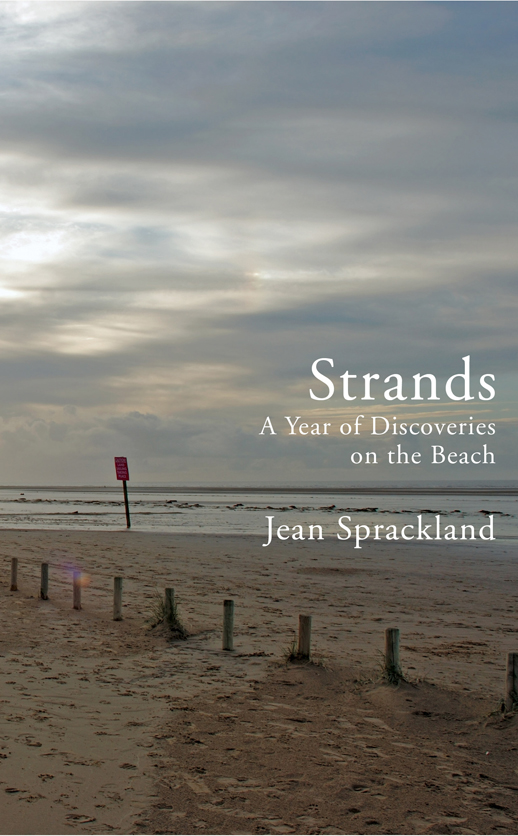by Jean Sprackland
Review by Melissa Harrison
There’s something about a poet’s voice – or perhaps more particularly, a poet’s eye – that lifts nature writing beyond the merely observatory or the formulaic. And as the genre becomes more popular, finding its way, as it has, onto creative writing courses, truly fine writing is one way in which the best of the new crop will be distinguished.
Jean Sprackland won the Forward Poetry Prize twice, for Best First Collection and more recently for Best Single Poem; she’s also won the Costa Poetry Award and been shortlisted for the TS Eliot Prize. So it’s no surprise that what she brings to her account of a year’s beachcombing on Ainsdale Sands, between Blackpool and Liverpool, is a precision with language and the kind of generous, associative imagination that sees connections everywhere, and can turn ordinary (and extraordinary) seaside discoveries into something rich and strange.
And the things she finds – the strandings, on the strand, carrying with them their strands of stories – are astonishing, from the wreck of the Star of Hope which appears from the sand one day, entire and imposing, to driftwood and sea coal, and from litter in all its pernicious forms to prehistoric human footprints pressed into the sediment and briefly revealed by the tide. She even stumbles across a message in a bottle, with a very modern mystery inside.
Of course, there’s a lot of natural history, too. After trying (and failing) to identify different seaweeds she travels to Wales to eat laverbread; she investigates jellyfish and sea squirts, seals, gulls and mermaid’s purses (shark’s eggs), and discovers the strange, and strangely affecting, corpse of a sea mouse with its astonishing implications for modern fibre-optic technology.
Her two most interesting finds, however, are more domestic in nature: a large lump of tobacco and a china teacup. The cup, washed up whole, turns out to be from an old Cunard liner: quite how it survived at least 50 years at sea is anyone’s guess. Sprackland takes a trip to the Maritime Museum in Liverpool to research the Queen Mary and Queen Elizabeth and in doing so unearths a rich seam of local history. Similarly, a chunk of compressed tobacco waste, fallen from a cliff, is the key to a fascinating episode in which Imperial Tobacco dumped the by-product of cigarette manufacturing along a stretch of the coast that is now being eroded by the sea. We think of the sea as wild and untamed, yet the secrets it contains and reveals are very often of our own making. As Sprackland says, ‘The tideline is an open book in a babble of different languages: an account of what the world desires, and then wishes to be rid of.’
Comparisons to Kathleen Jamie are inescapable, given Sprackland’s literary pedigree and subject matter, but the two are very different writers; Sprackland’s prose is warmer, more human – and humorous; Jamie’s more astringent and detached. And where Sightlines and Findings took observations of the natural world as jumping-off points for freewheeling philosophical meditations, Strands packs in more factual research – sometimes, it has to be said, a little at the expense of its lyrical tone.
Strands works because although Sprackland is not a marine biologist, an archaeologist or a local historian, but, like us, someone walking on the beach and finding treasures, what she brings to her finds is the kind of imaginative insight that results from a life spent making poems, and the ability to render those discoveries for us in clean, sparkling prose. Her jumble of marine treasures add up to a unique account, one which may leave you longing to live, and not just holiday, by the sea.
Melissa Harrison is writer and photographer who lives in South London and blogs about the city’s wild, forgotten corners at talesofthecity.co.uk. Her first novel, Clay, will be published by Bloomsbury in January 2013. Follow her on Twitter: @M_Z_Harrison
